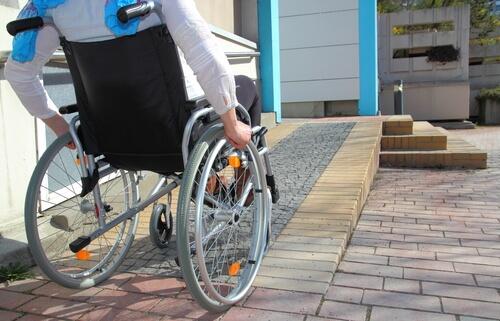Principal Office Located at 1424 Gables Court, Plano, TX 75075
Call Today For a Free Case Evaluation
Recent Blog Posts
Can I Receive SSDI Benefits on the Basis of Drug or Alcohol Addiction?
 Many individuals who suffer from drug or alcohol addiction are unable to keep a steady job due to their addiction. But does this mean that you can receive Social Security Disability Insurance (SSDI) benefits based on your addiction? The short answer is no, you cannot. However, it is possible to obtain SSDI benefits for other conditions—even if you have an addiction. Let’s look at what you need to prove in order to get disability benefits for a condition other than substance abuse or addiction.
Many individuals who suffer from drug or alcohol addiction are unable to keep a steady job due to their addiction. But does this mean that you can receive Social Security Disability Insurance (SSDI) benefits based on your addiction? The short answer is no, you cannot. However, it is possible to obtain SSDI benefits for other conditions—even if you have an addiction. Let’s look at what you need to prove in order to get disability benefits for a condition other than substance abuse or addiction.
What Does the SSA Consider a Disability?
The Social Security Administration (SSA) defines a disability as “the inability to engage in any substantial gainful activity by reason of any medically determinable physical or mental impairment which can be expected to result in death or has lasted or can be expected to last for a continuous period of not less than 12 months.” In order to qualify for SSDI benefits, an individual must prove that the impairments that prevent them from working were not caused by their own drug or alcohol abuse.
Understanding Crohn’s Disease and How It Affects Those Afflicted
 Crohn's disease is an inflammatory bowel disease that can cause severe abdominal pain, weight loss, fatigue, anemia, and diarrhea. It is a chronic condition with no known cure, and it can severely affect the quality of life for those who have it. If Crohn’s disease is preventing you from working and supporting yourself, we can also help you apply for Social Security disability benefits. If you think you may have Crohn’s disease or are just curious about what it is and how to recognize its signs and symptoms, today’s post will help you understand the basics.
Crohn's disease is an inflammatory bowel disease that can cause severe abdominal pain, weight loss, fatigue, anemia, and diarrhea. It is a chronic condition with no known cure, and it can severely affect the quality of life for those who have it. If Crohn’s disease is preventing you from working and supporting yourself, we can also help you apply for Social Security disability benefits. If you think you may have Crohn’s disease or are just curious about what it is and how to recognize its signs and symptoms, today’s post will help you understand the basics.
How Does One Get Crohn's Disease?
The exact cause of Crohn’s disease remains unknown. However, research suggests that genetics play a role in determining one’s predisposition to developing the condition. It is likely caused by a combination of genetic factors, environmental triggers (such as smoking), and possibly dietary habits (such as eating foods high in saturated fat).
What You Should Know About Residual Functional Capacity
 If you are disabled and filing for Social Security disability benefits, you may have heard the term “residual functional capacity.” But what does this mean? Residual functional capacity (RFC) is an important factor used to determine whether an individual is eligible for disability benefits. Understanding how RFC works can help you prepare your case and make sure that all relevant evidence is considered by the Social Security Administration (SSA).
If you are disabled and filing for Social Security disability benefits, you may have heard the term “residual functional capacity.” But what does this mean? Residual functional capacity (RFC) is an important factor used to determine whether an individual is eligible for disability benefits. Understanding how RFC works can help you prepare your case and make sure that all relevant evidence is considered by the Social Security Administration (SSA).
What Is Residual Functional Capacity?
Residual functional capacity (RFC) measures an individual’s ability to perform work-related activities, such as lifting, carrying, walking, standing, sitting, pushing, and pulling. The SSA uses these measurements to assess how well a person is able to handle tasks related to their job, if they were still employed. It also considers any activity limitations due to mental health or physical ailments. For example, someone with fibromyalgia might not be able to lift heavy objects or stand for extended periods of time.
Finding the Right Social Security Disability Lawyer
 If you are suffering from a disability that prevents you from working and providing for yourself, you may be eligible for Social Security disability benefits. The process of obtaining your benefits, however, can be very difficult, and it is advisable to work closely with an experienced disability attorney. Finding the right attorney can also be a challenge, so here are a few tips that can help you make an informed decision about your disability attorney.
If you are suffering from a disability that prevents you from working and providing for yourself, you may be eligible for Social Security disability benefits. The process of obtaining your benefits, however, can be very difficult, and it is advisable to work closely with an experienced disability attorney. Finding the right attorney can also be a challenge, so here are a few tips that can help you make an informed decision about your disability attorney.
Research Your Options
There are thousands of lawyers in the Greater Dallas area, and it is important to research and compare different lawyers or firms before deciding on one. Keep in mind that some attorneys focus their practices on different areas of law, such as personal injury, family law, or criminal defense. You want to ensure that your attorney has specific and meaningful experience dealing with Social Security disability cases. Ask questions about their experience and success rate with prior clients who were facing similar issues as you are facing.
Lawsuits Allege Fraud in Social Security Disability Decision-Making Process
 It is not uncommon for a person who files a claim for benefits under the Social Security Disability Insurance (SSDI) program to be told that additional medical evidence is required. In many situations, applicants are required to undergo a consultative exam with a medical professional who is approved by the Social Security Administration (SSA).
It is not uncommon for a person who files a claim for benefits under the Social Security Disability Insurance (SSDI) program to be told that additional medical evidence is required. In many situations, applicants are required to undergo a consultative exam with a medical professional who is approved by the Social Security Administration (SSA).
Generally, there are at least a few approved contractors in a given geographic area who can provide such exams, but according to several lawsuits that were filed recently, some of them may not be providing the level of honest care that applicants should expect. Such was the case, allegedly, for a woman in Kansas City who sought a consultative exam as part of her 2018 SSDI application process.
Questions About the Consultative Exam
According to local news reports and court documents, a Kansas City woman applied for disability benefits in 2018, stating she could not work due to a number of health issues, including neck and back pain, carpal tunnel syndrome, hip surgery, arthritis, and constant migraines. As part of the application process, she visited a particular SSA-contracted medical provider in Kansas City.
Repetitive Stress Injuries Can Affect Your Ability to Work and Qualify You for SSDI Benefits
 When most people think about health conditions for which Social Security Disability benefits might be available, they often envision life-changing conditions such as cancer, auto-immune diseases, and severe, obvious injuries. In reality, however, nearly any condition that prevents you from maintaining gainful employment could potentially make you eligible for benefits under the Social Security Disability Insurance (SSDI) program. This includes repetitive stress injuries such as carpal tunnel syndrome, tennis elbow, and more.
When most people think about health conditions for which Social Security Disability benefits might be available, they often envision life-changing conditions such as cancer, auto-immune diseases, and severe, obvious injuries. In reality, however, nearly any condition that prevents you from maintaining gainful employment could potentially make you eligible for benefits under the Social Security Disability Insurance (SSDI) program. This includes repetitive stress injuries such as carpal tunnel syndrome, tennis elbow, and more.
Understanding Repetitive Stress Injuries
Repetitive stress injuries (RSIs) are a type of condition that is caused by performing the same motions over and over again. This can happen at work if you have a job that requires you to perform the same task day in and day out. It can also occur during leisure activities, such as playing a musical instrument or participating in a sport.
Living with Lupus: What You Need to Know
 If you suffer from lupus, you know how difficult it can be sometimes to do even the most basic things. Simply getting out of bed in the morning can be a struggle, let alone going to work and providing for your family. While there may not be a cure for this serious autoimmune disease, there are some things that may be able to help you. In addition, you might also qualify for Social Security disability benefits.
If you suffer from lupus, you know how difficult it can be sometimes to do even the most basic things. Simply getting out of bed in the morning can be a struggle, let alone going to work and providing for your family. While there may not be a cure for this serious autoimmune disease, there are some things that may be able to help you. In addition, you might also qualify for Social Security disability benefits.
What Is Lupus?
In order to understand how lupus can affect your ability to work, it is important to first understand what the disease is. Lupus is a chronic autoimmune disease that can damage any part of the body. The immune system normally protects the body from infection and illness. However, in people with lupus, the immune system attacks healthy cells and tissues.
This can cause inflammation and damage in various parts of the body, including the joints, skin, kidneys, heart, lungs, blood vessels, and brain. Lupus can also cause mild to severe fatigue, as well as other symptoms such as fever, chest pain, hair loss, and headaches. There is no one test that can definitively diagnose lupus. Instead, doctors will often use a combination of tests and physical examinations to make a diagnosis. There is no cure for lupus, but there are treatments that can help manage the symptoms.
Can My SSDI Benefits Be Denied for Failing to Follow My Doctor's Orders?
 If you are already receiving Social Security disability benefits or you have a condition that should qualify you for such benefits, it is important to follow your doctor's orders for treating your condition. Failing to do so can result in a denial of benefits. A qualified Social Security Disability Insurance (SSDI) attorney from The Law Offices of Coats & Todd can help you understand the potential consequences of failing to follow a doctor's orders and what you can do to avoid a denial of benefits.
If you are already receiving Social Security disability benefits or you have a condition that should qualify you for such benefits, it is important to follow your doctor's orders for treating your condition. Failing to do so can result in a denial of benefits. A qualified Social Security Disability Insurance (SSDI) attorney from The Law Offices of Coats & Todd can help you understand the potential consequences of failing to follow a doctor's orders and what you can do to avoid a denial of benefits.
What Happens if I Fail to Follow My Doctor's Orders?
When you apply for SSDI benefits, you are required to provide supporting medical documentation about your condition and how it is affecting your ability to work. Part of that information should be the specifics of your condition as well as what is being done to treat it. According to the Social Security Administration (SSA), you must follow your prescribed treatment if the treatment is expected to restore—even partially—your ability to work.
New Conditions Added to Accelerated Social Security Disability Approval Program
 The application and approval process for Social Security Disability Insurance (SSDI) benefits can be time-consuming and stressful. Successfully navigating the process often requires the help of an experienced disability attorney. While we are happy to help our clients in obtaining the benefits they deserve, we are also excited when the Social Security Administration (SSA) takes steps to streamline the process.
The application and approval process for Social Security Disability Insurance (SSDI) benefits can be time-consuming and stressful. Successfully navigating the process often requires the help of an experienced disability attorney. While we are happy to help our clients in obtaining the benefits they deserve, we are also excited when the Social Security Administration (SSA) takes steps to streamline the process.
Last month, the SSA announced additions to a specific program that has already accelerated the applications of about 800,000 Americans with disabling conditions. The additions come in the form of 12 new conditions that have been added to the Compassionate Allowance program, which expedites the processing of claims for applicants who are severely disabled.
Compassionate Allowances
When a “normal” applicant for SSDI submits an application for benefits, the application must include documentation and proof of the person’s disabling condition. In most cases, this triggers a medical review by the SSA.
Social Security Disability for Military Veterans
 Social Security disability benefits are generally available to disabled veterans, regardless of the war in which they served and how long ago the conflict was. Many disabled or wounded veterans are also eligible to receive disability benefits through the Department of Veterans Affairs (VA). While the goals of these two programs are similar—that is, providing financial assistance to disabled individuals—there are some important differences.
Social Security disability benefits are generally available to disabled veterans, regardless of the war in which they served and how long ago the conflict was. Many disabled or wounded veterans are also eligible to receive disability benefits through the Department of Veterans Affairs (VA). While the goals of these two programs are similar—that is, providing financial assistance to disabled individuals—there are some important differences.
If you are a disabled veteran who is looking to obtain Social Security Disability Insurance (SSDI) benefits, your first call should be to a qualified disability attorney at The Law Offices of Coats & Todd. We will help you work through your application and secure the benefits to which you are entitled under the appropriate program.
Definitions of Disability
Perhaps the biggest difference between SSDI and VA disability compensation is each program’s definition of “disabled.” To be considered disabled by the Social Security Administration (SSA), you must show that you cannot perform “substantial gainful activity” as the result of a “medically determinable physical or mental impairment” that has lasted or is expected to last for at least 12 months or can be expected to result in your eventual death.

 972-671-9922
972-671-9922





